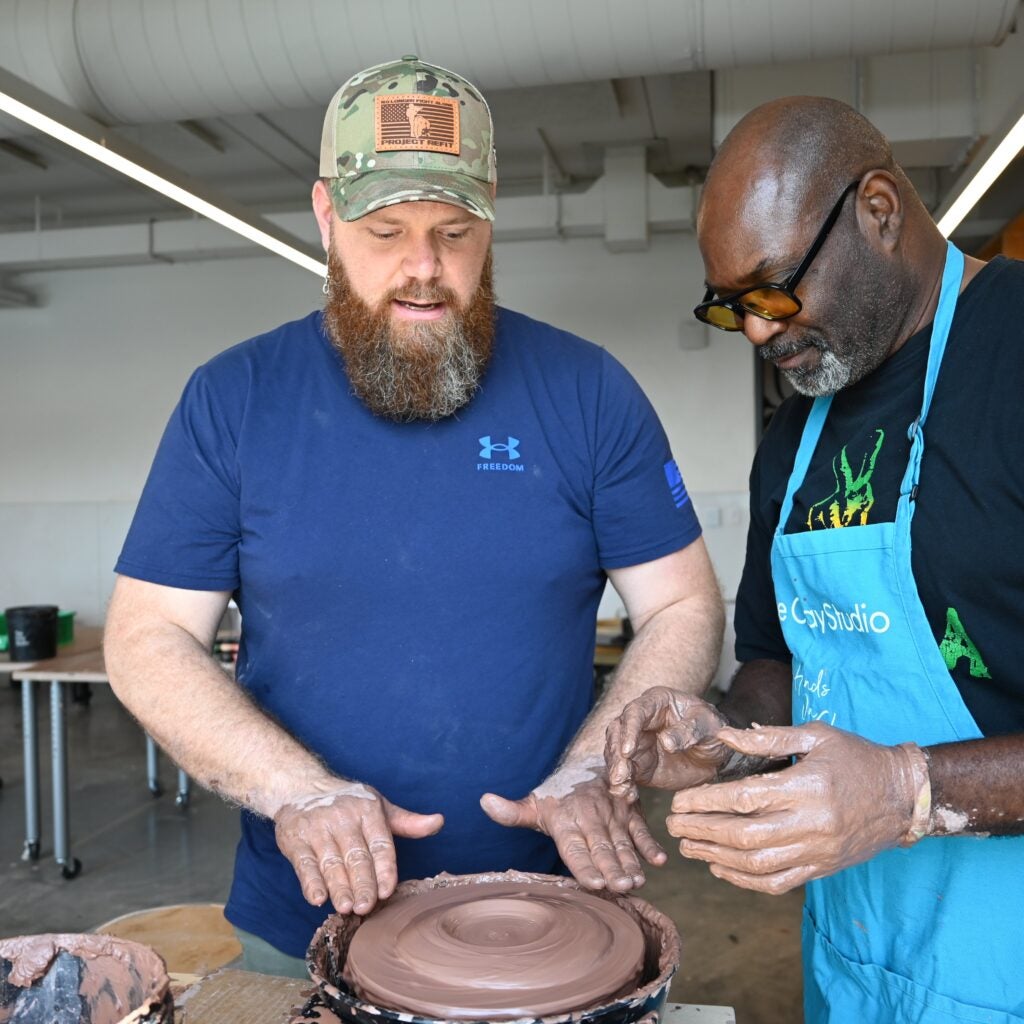From Philly and the Pa. suburbs to South Jersey and Delaware, what would you like WHYY News to cover? Let us know!
When Bradford Davis retired from serving in the U.S. Army in 2015, after being injured during a deployment in Afghanistan, he felt lost.
“I really was flailing because I didn’t have a purpose,” Davis said. “I had significant injuries, I was self-isolating, and spiraling,” he said of the years following his service.
Davis had been working in ceramics and clay before he joined the Army, and eventually, he returned to those roots. “The ceramics community helped me become a functional person again, and I found happiness.”
Davis, an artist in residence at The Clay Studio in Philadelphia, wanted to bring that same opportunity for connection and healing to other veterans. He approached the studio with an idea, Operation Mud, a regular workshop for veterans, taught by veterans. Right away, he was met with excitement. “They were like, ‘How about we start now,’” he said.
 Bradford Davis, instructor, Operation Mud (left), with Keith Ockimey, veteran, Operation Mud participant. (Courtesy of The Clay Studio)
Bradford Davis, instructor, Operation Mud (left), with Keith Ockimey, veteran, Operation Mud participant. (Courtesy of The Clay Studio)
Each studio class introduces veterans to different skills, and sometimes workshops are taught by a visiting veteran artist. But Davis said the workshops are about much more than artistic skill.
“It’s really to check in with each other and have fun and see how each other are doing and help each other network and build community,” he said. “Because that helps combat issues like veteran homelessness, veteran suicide, a lot of what we in the military refer to as statistical issues.”
Davis likes to break up class time with questions about participants’ lives — from fun questions like what they enjoy about fall to deeper issues around feeling isolated, alone or depressed.
Veteran Eric Marsh Jr. said the Philadelphia VA referred him to the program as a way to get him out of the house. He’s enjoyed the community and the opportunity to express himself through art. Another participant, veteran Janie McNeil, said the sense of connection she feels in the group is a lifeline.
“Nobody understands a veteran like another veteran, and if you don’t encounter other veterans, there’s so much stuff that you keep bottled up. So it’s a wonderful thing to have this opportunity to break bread and to just have casual talks.”

